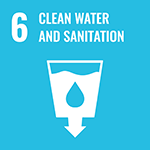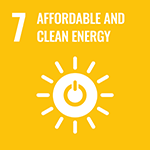Development of Palm Oil Mill Effluent (POME) Treatment System for Sustainable Energy Production and Resource Recovery based on Material Innovation
Principal Investigator


Prof. Datuk Ir Ts Dr
Universiti Teknologi Malaysia
Ahmad Fauzi Ismail
ODA Recipient Country
Malaysia
Research Institutions in Japan
Nagoya University / Nagoya Institute of Technology / Kyoto University
Research Institutions in Counterpart Country
Universiti Teknologi Malaysia / Malaysia Palm Oil Board / Tenaga National / Berhad Research / National Hydraulic Institute of Malaysia
Adoption fiscal year
FY 2022
Research Period
5 Years
Overview of the Research Project
Materials innovation plus methane fermentation/electricity generation/photosynthesis equals resource recovery water treatment
Malaysia is the world’s second largest producer of palm oil, but milling effluent has been shown to cause water pollution. In this project, we are developing a system to use milling effluent to produce methane gas, recover electric power by using microbial fuel cells, and collect nutrient salts by photosynthesis, as well as manufacturing reclaimed water from the treated water. By encouraging or suppressing the microbial reactions in each process, and by developing materials that increase the capacity to isolate the substances concerned, we will establish a highly efficient water treatment process for resource recovery.
Turning effluent treatment into a resource recycling system to create new value
Transforming conventional energy-consuming water treatment into a resourcerecycling process will not only resolve water pollution issues but also greatly reduce greenhouse gases, improving the sustainability of palm oil production. This will be an important model case as a form of environmental infrastructure for the fuel production created by carbon fixation from widespread photosynthesis.
Photo gallery
Research Project Web site
Press Release
Links
Projects
Contact Us
Japan Science and Technology Agency (JST)
Department of International Affairs
SATREPS Group
TEL : +81-3-5214-8085
Related articles by Category
- Global-scale environmental issues
Environment / Energy
(Global-scale environmental issues)
 Republic of Kazakhstan
Republic of Kazakhstan
Aim for zero pollution by digitizing mines with “Smart Mining Plus”!
Next-generation Smart Mining Plus for Sustainable Resources Development
- Malaysia
Disaster Prevention and Mitigation

 Malaysia
Malaysia
Mitigating the damage caused by 200 lightning days a year by nowcasting with advanced observation network
Real-Time Lightning 3D Imaging and Forecasting Project for Sustainable and Reliable Supply of Energy and Storm Disaster Early Warning
- Asia
Environment / Energy
(Carbon Neutrality)
 Socialist Republic of Vietnam
Socialist Republic of Vietnam
Regenerating cassava farm land by storing carbon in the soil!
Transforming the Cassava Production System in Vietnam by Establishing Regenerative Farming and Smart Starch Supply Chain Management
- SDGs : Goal.6
Environment / Energy
(Global-scale environmental issues)
 Arab Republic of Egypt
Arab Republic of Egypt
Enabling community-wide conservation of the water and land that support life in an oasis!
Securing the Sustainability of Oasis Societies Associated with Water and Land Use in the Western Desert






















